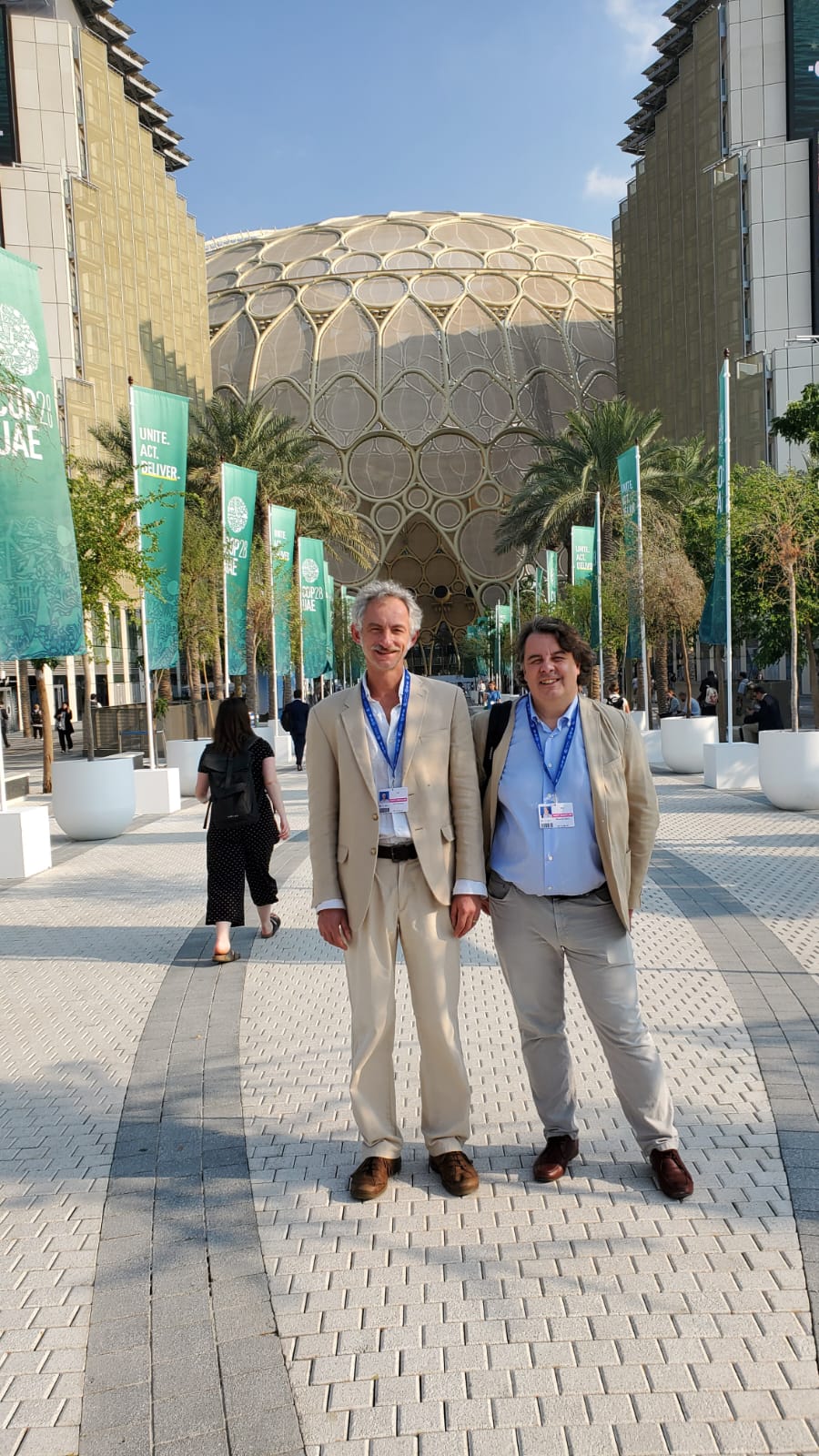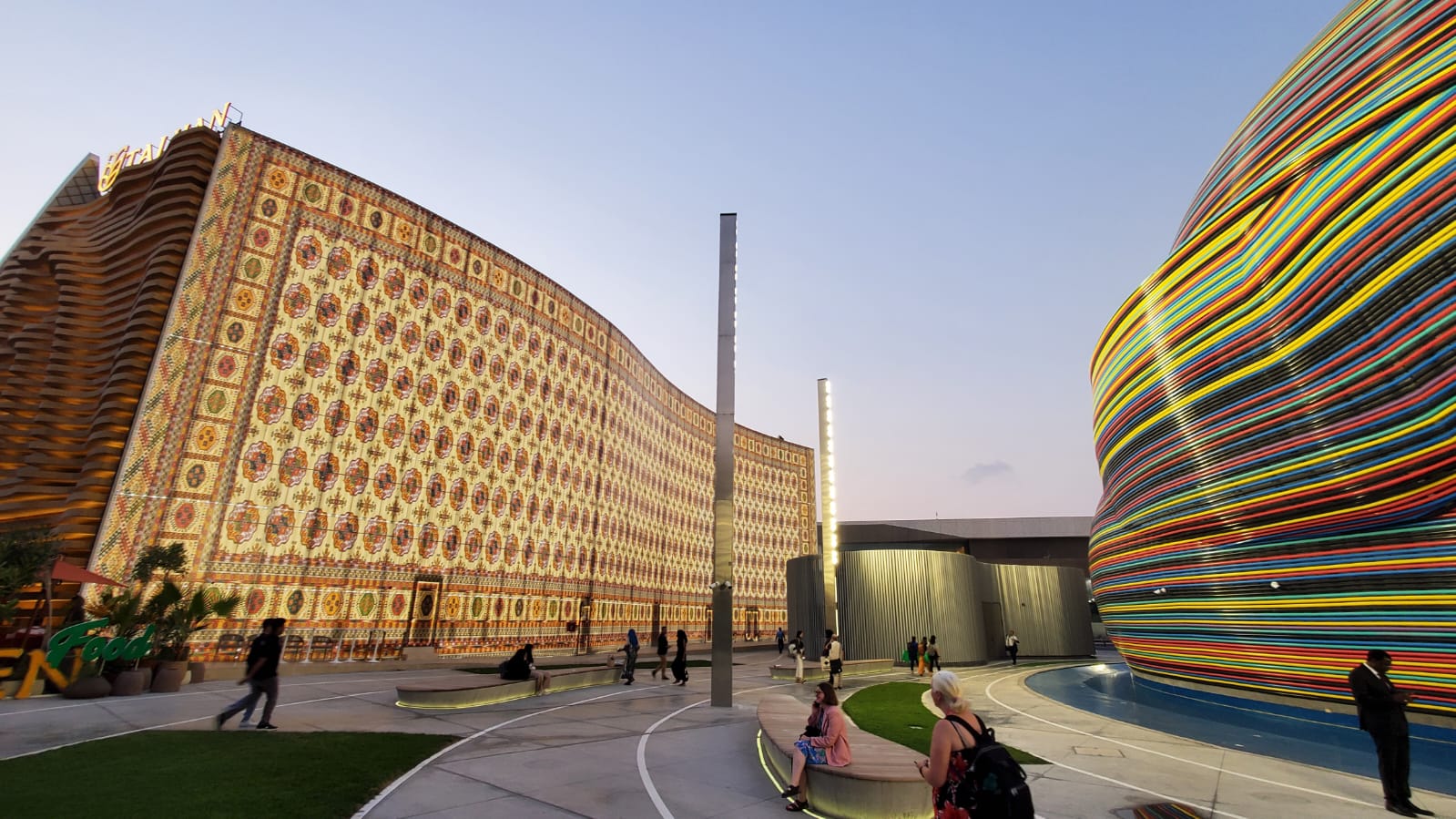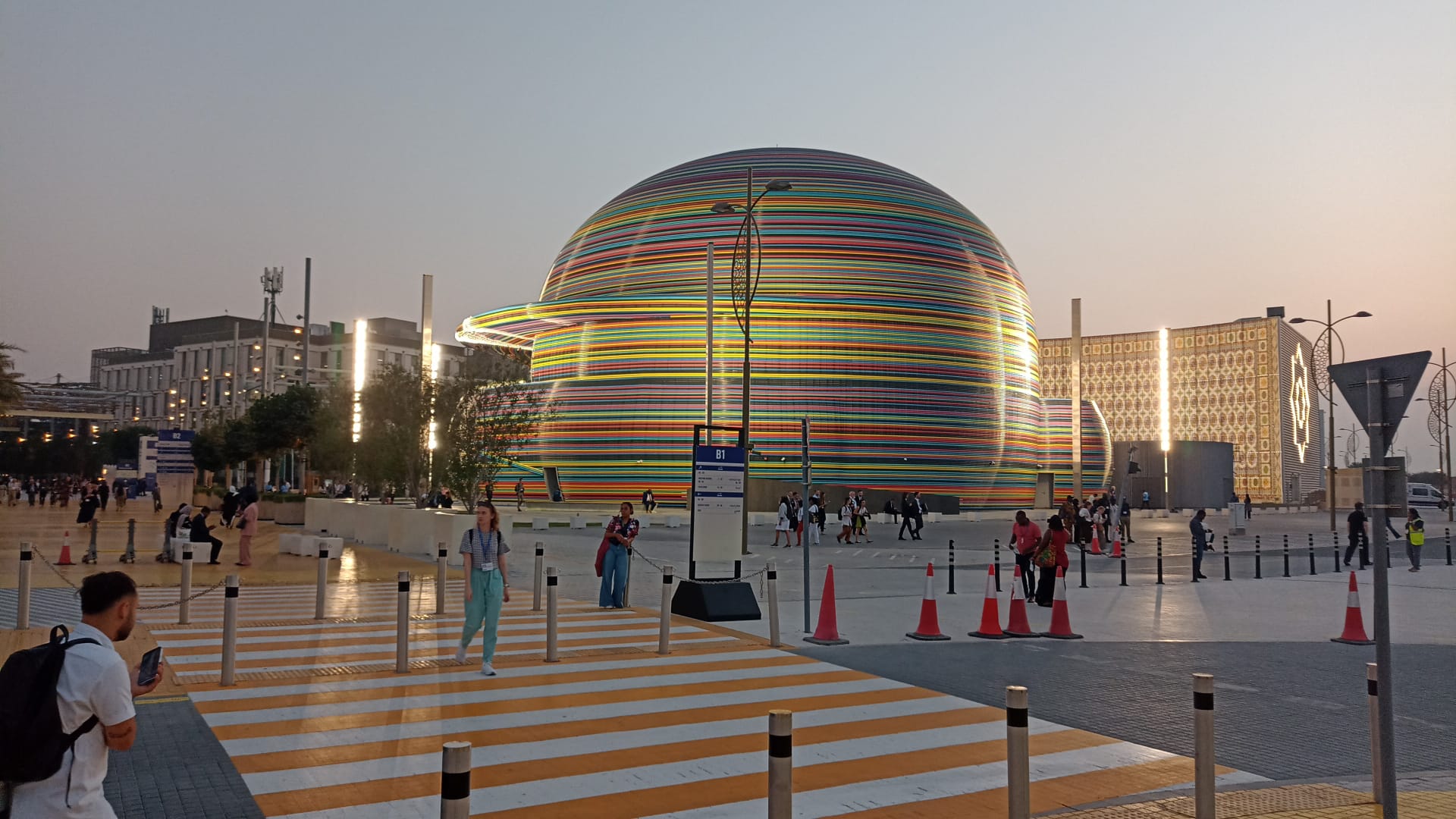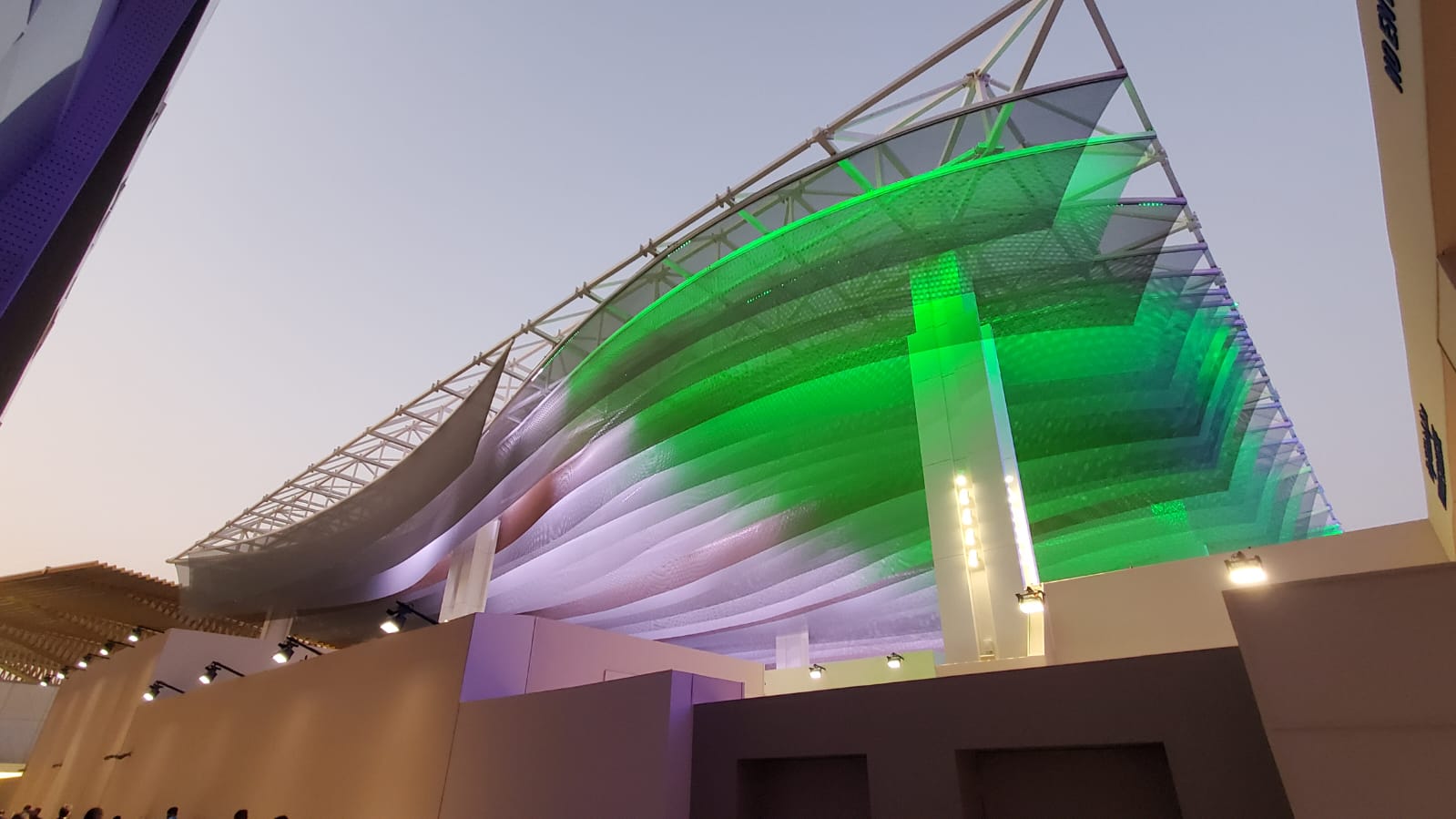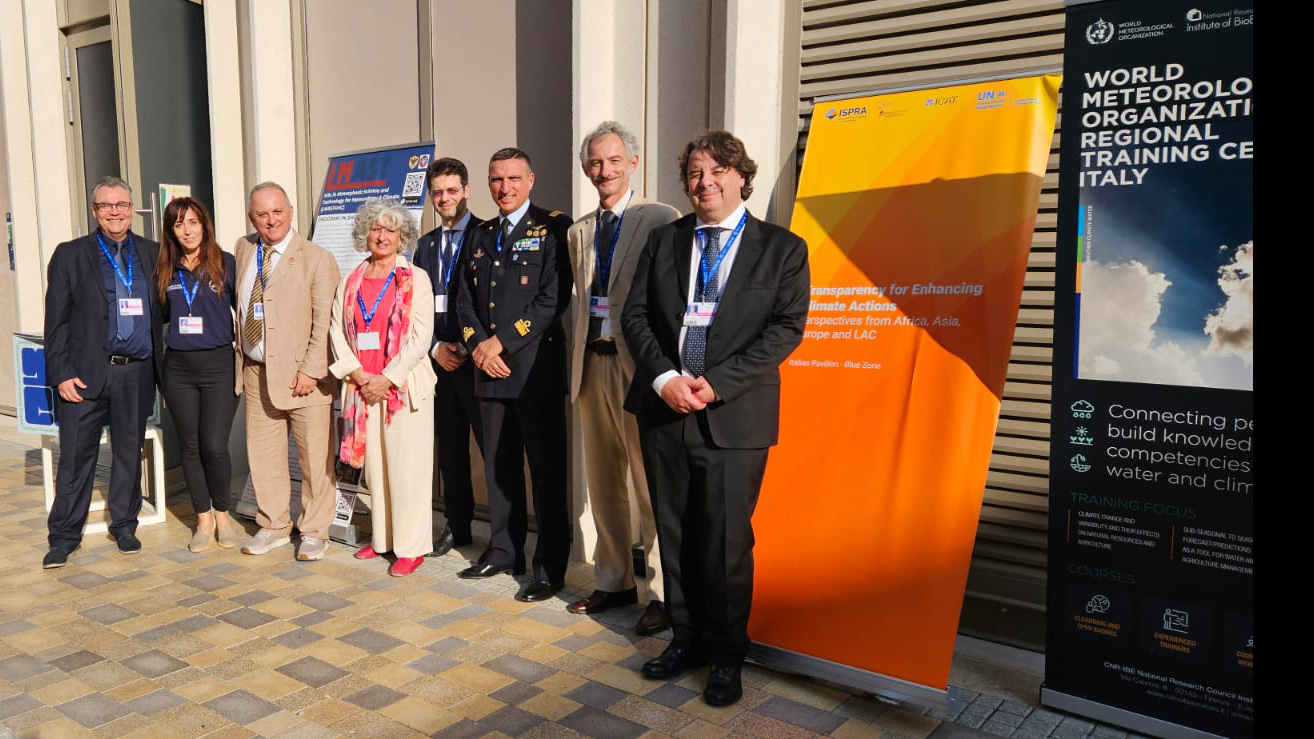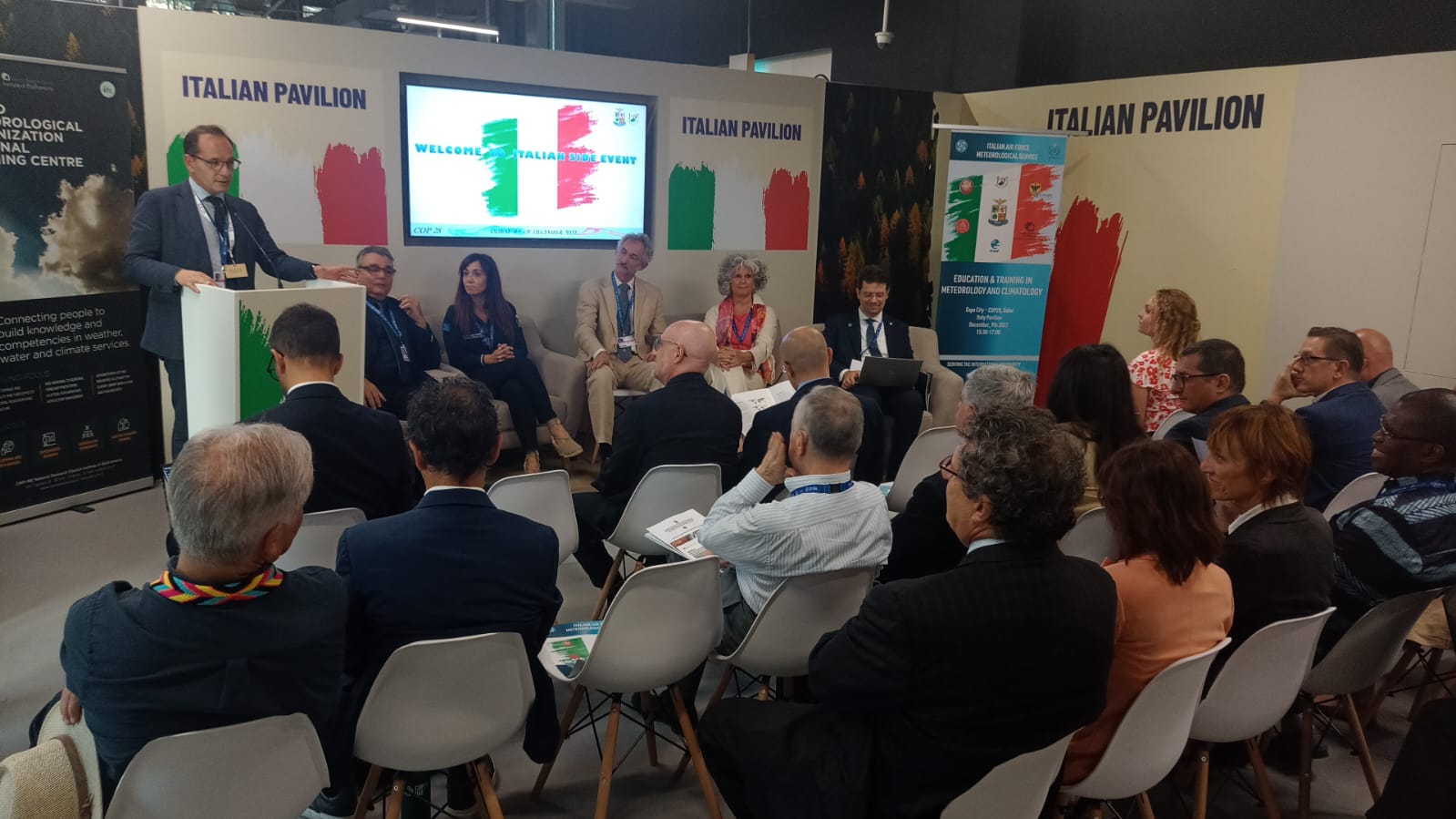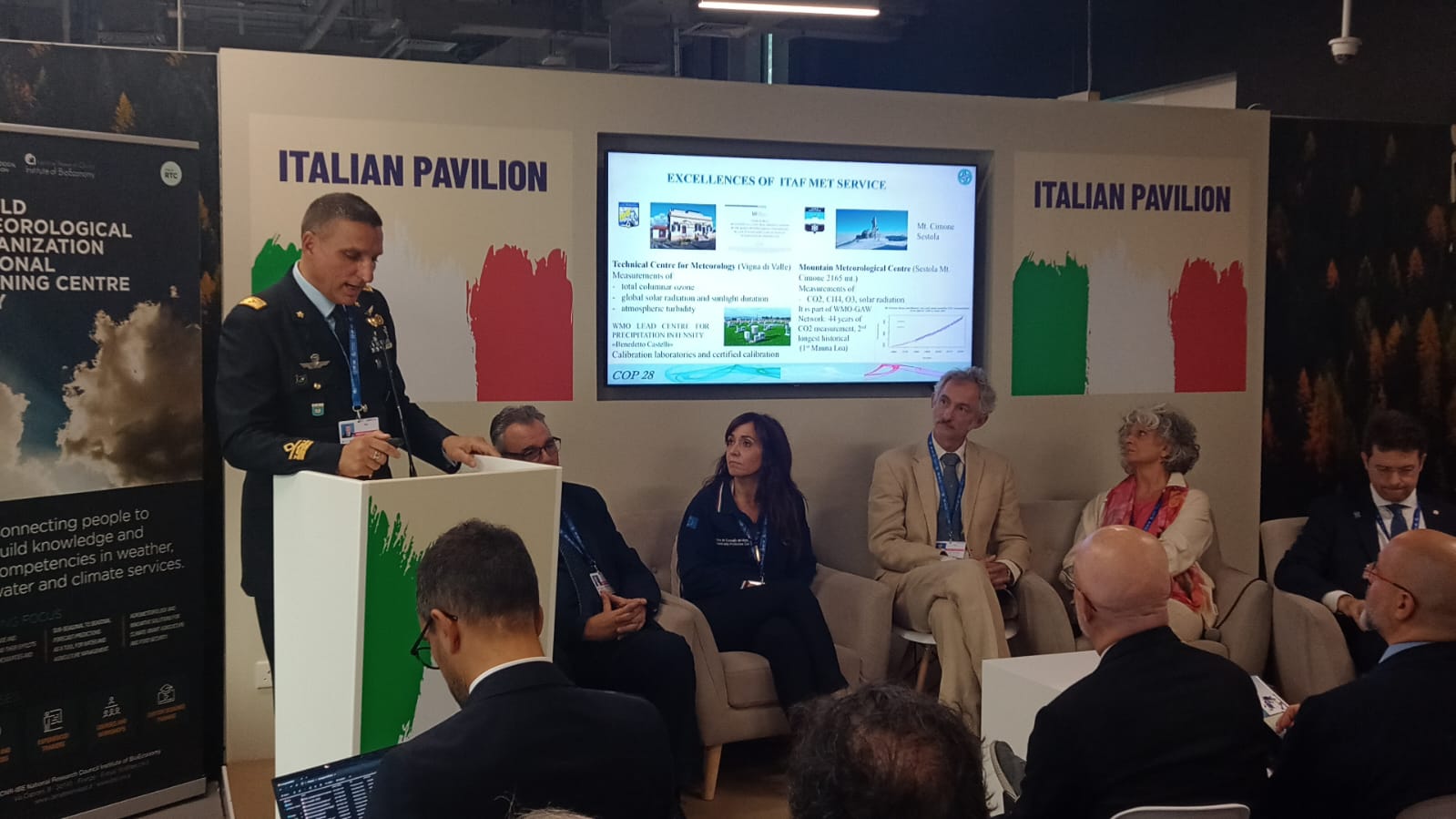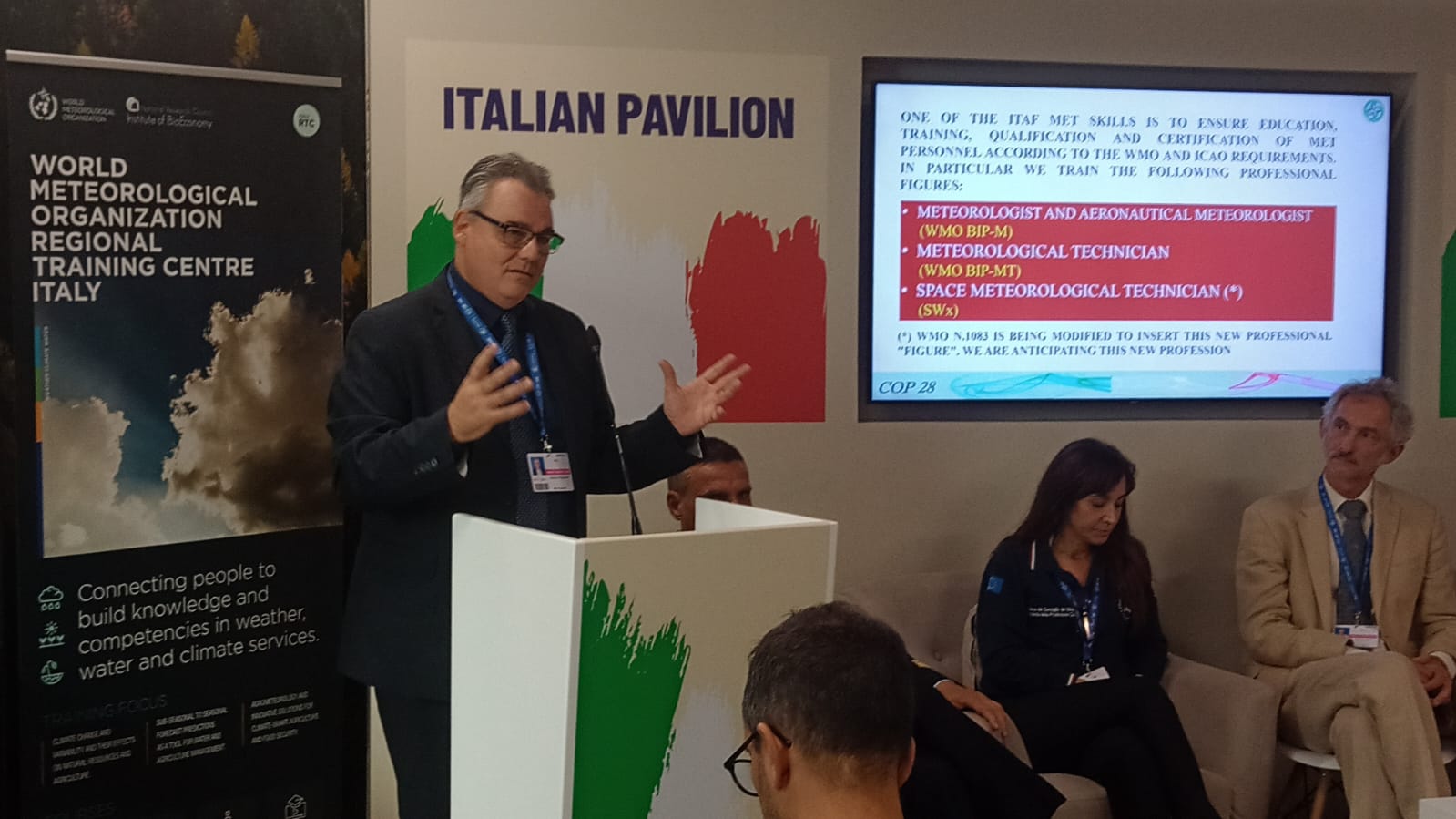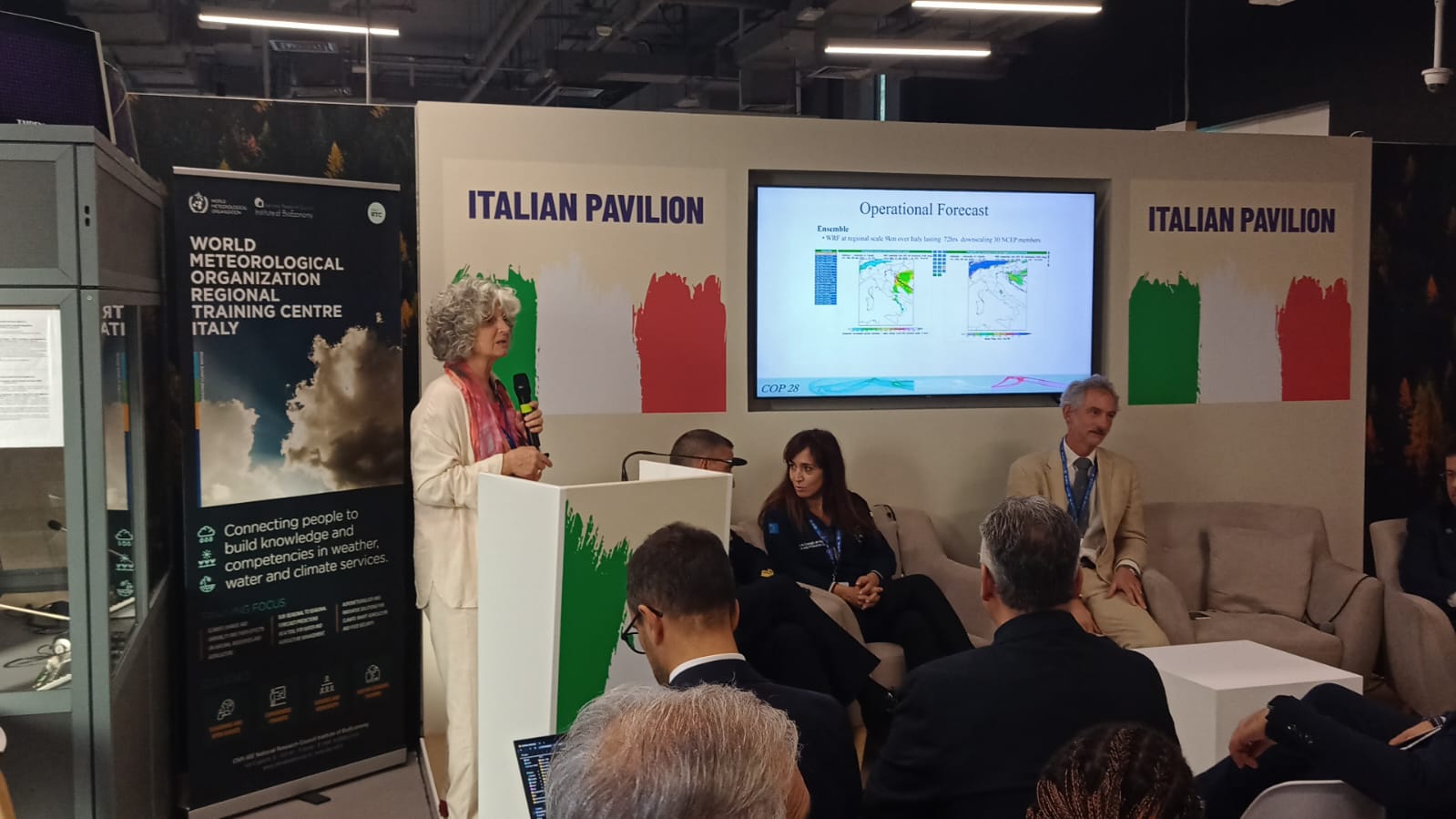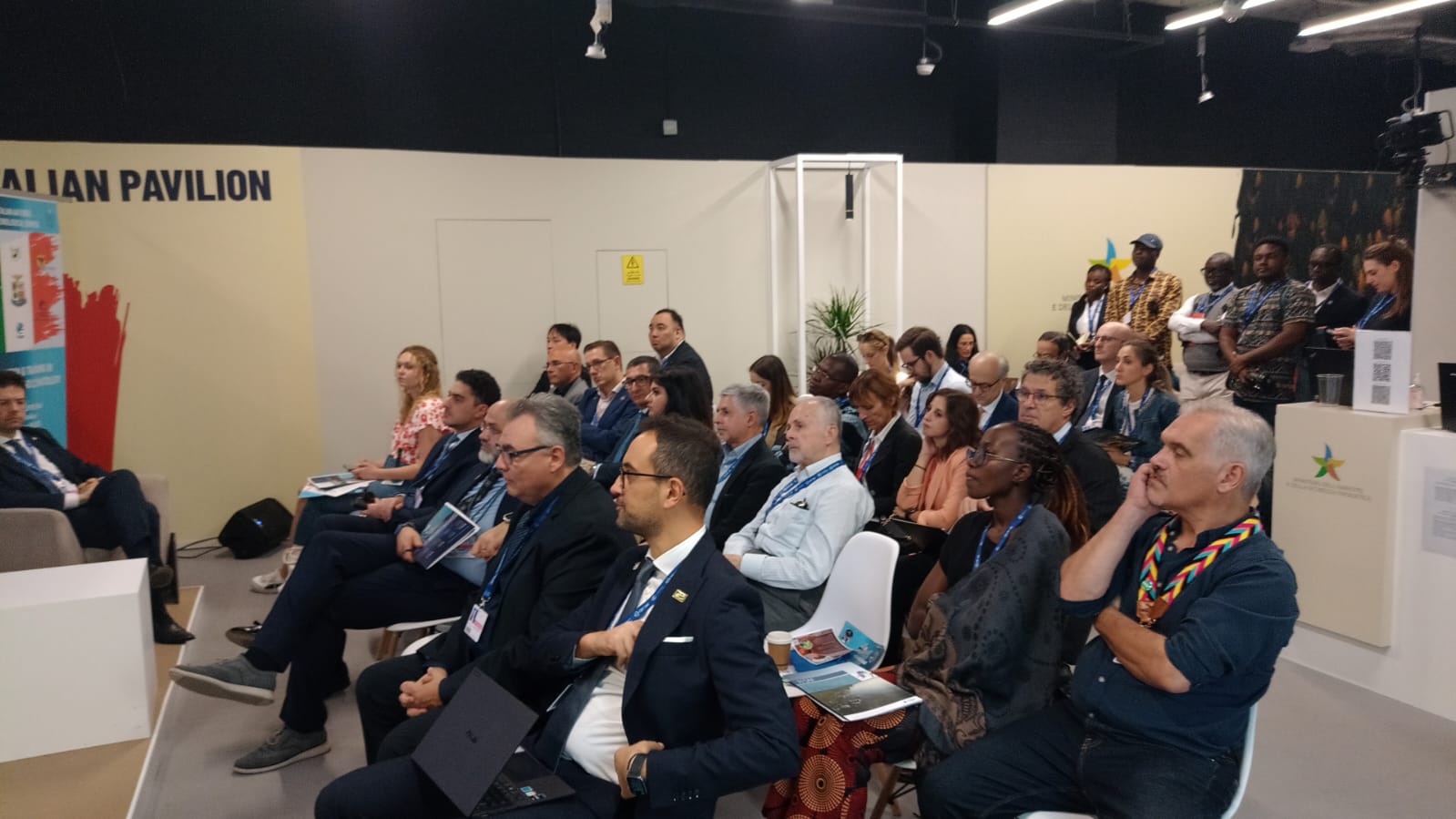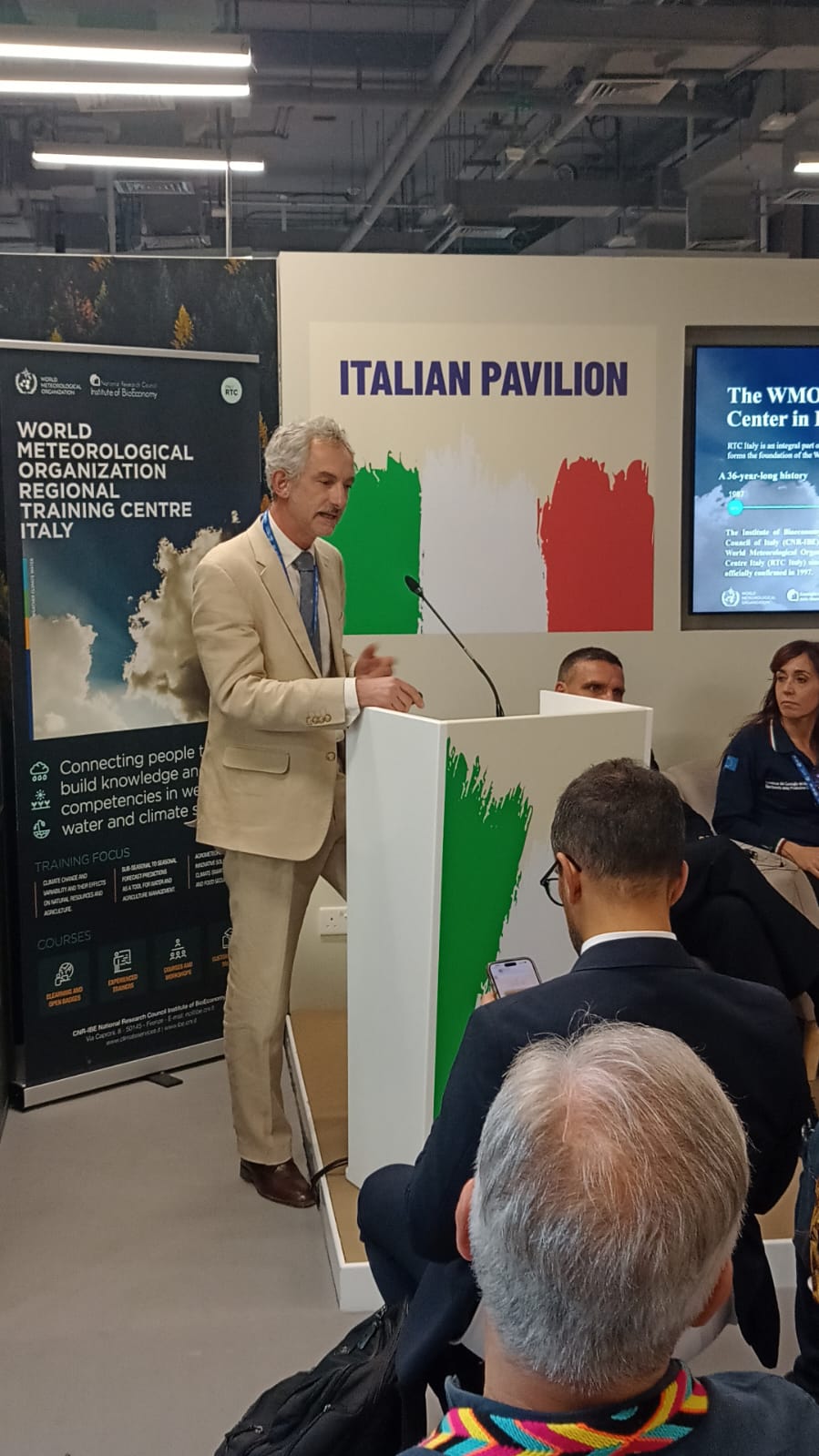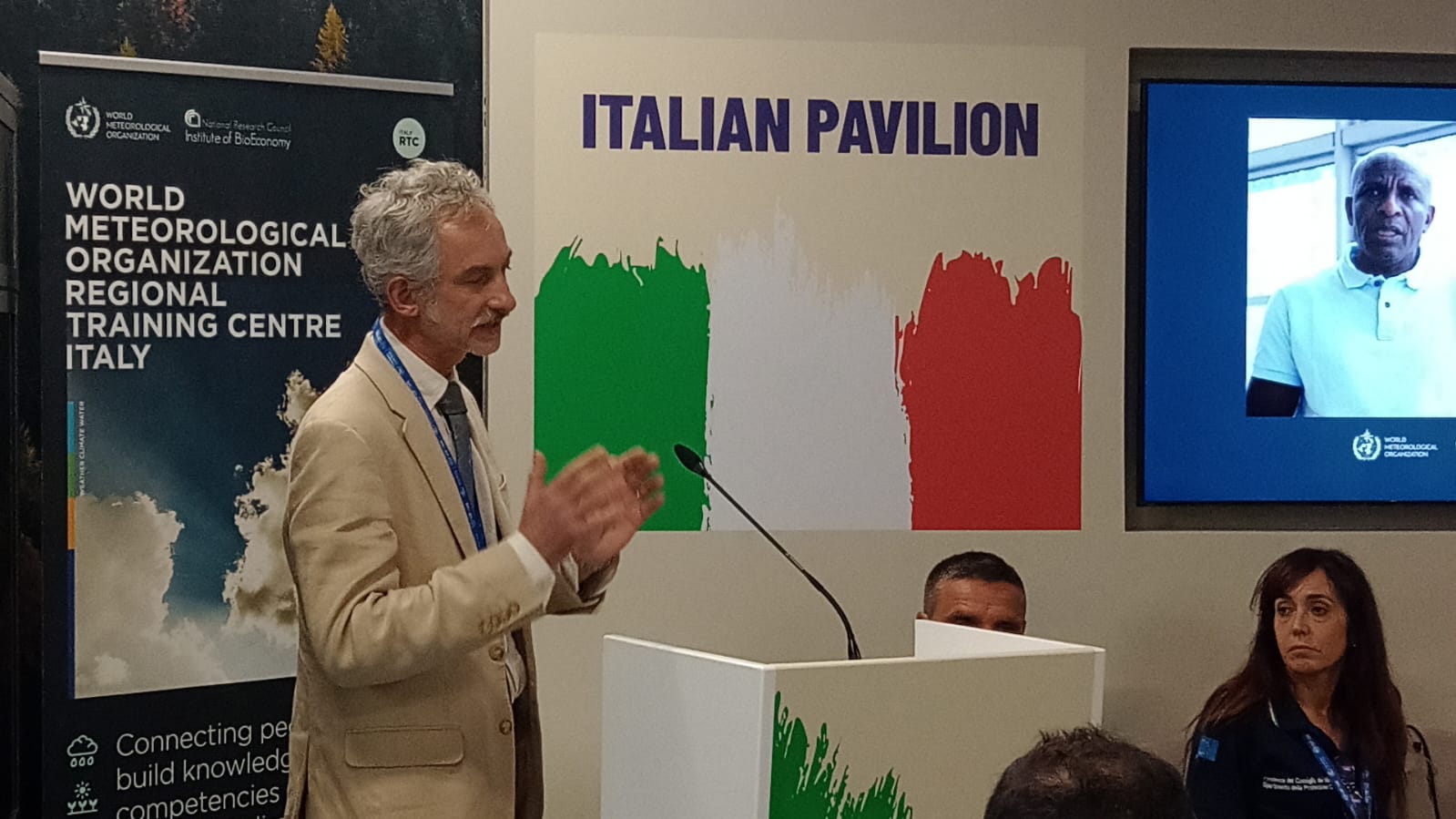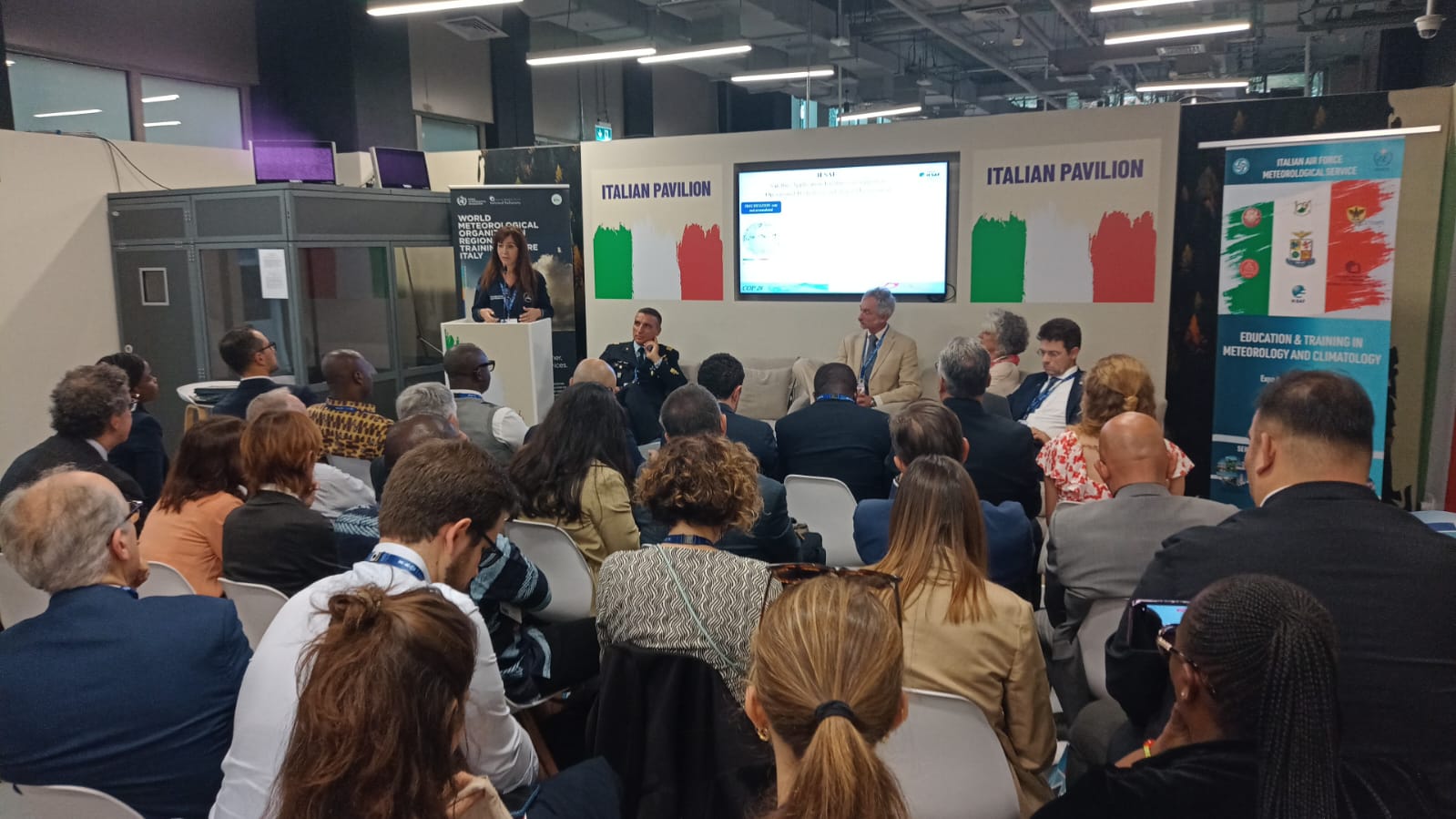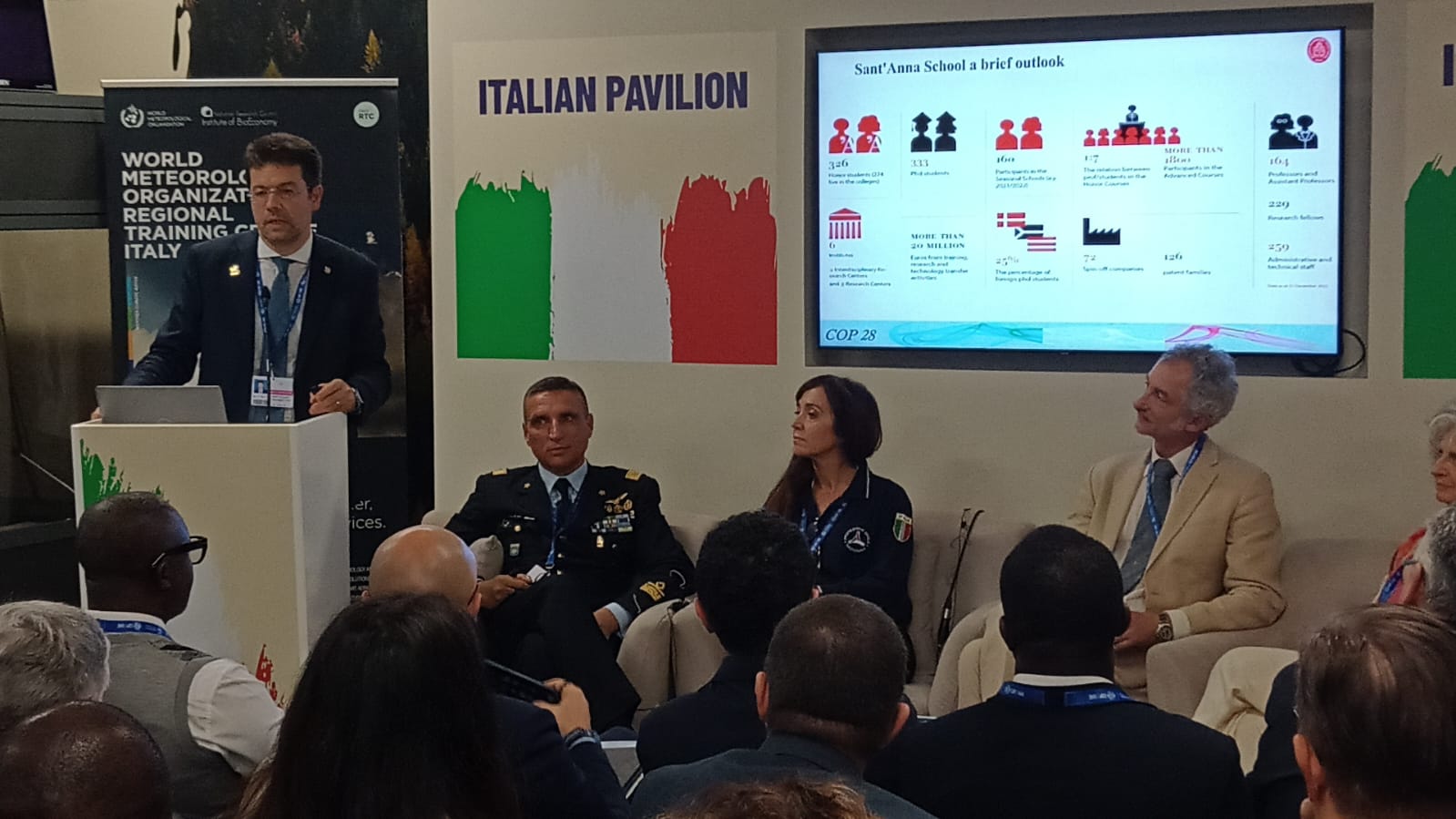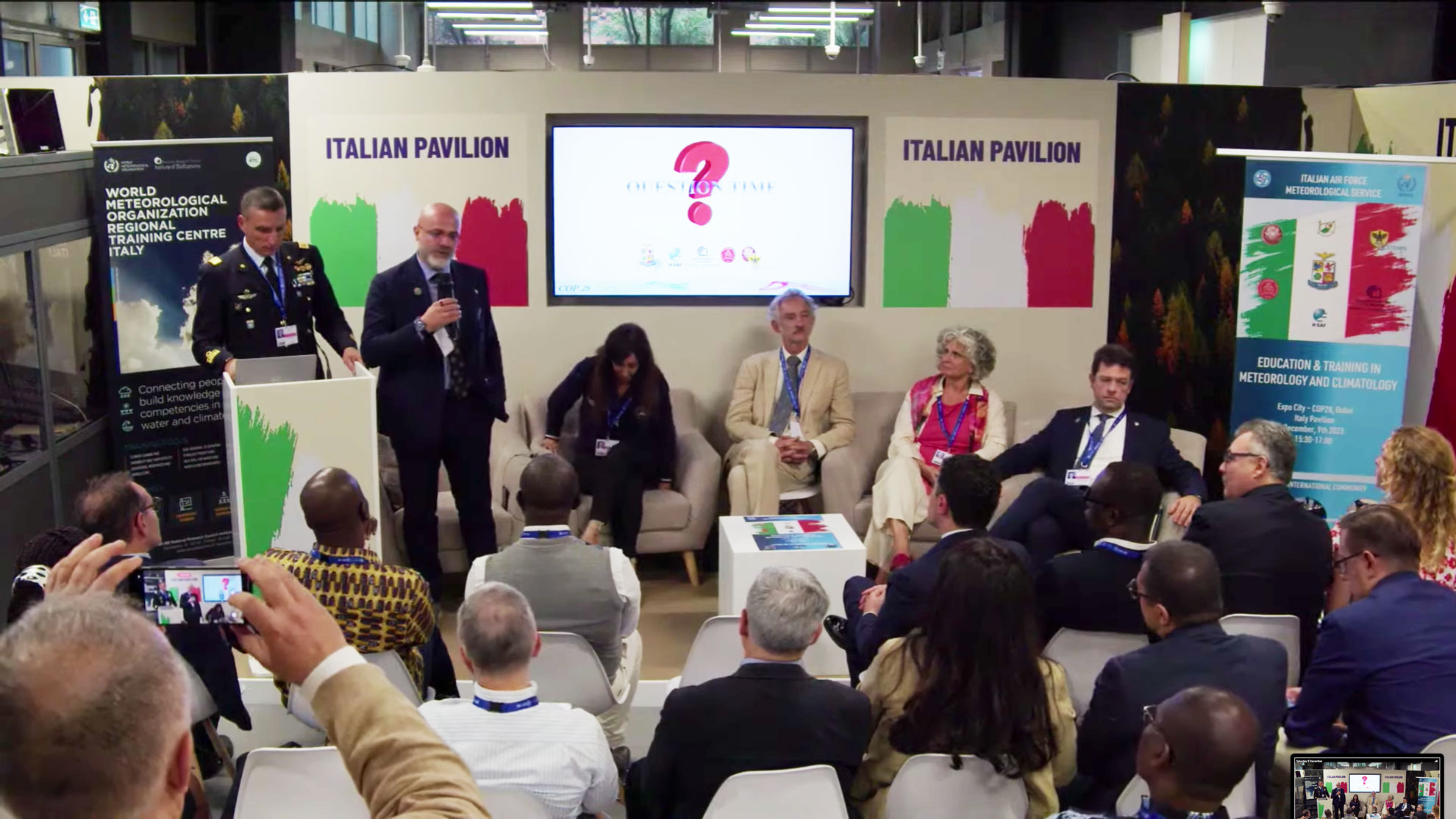WMO RTC Italy at COP28
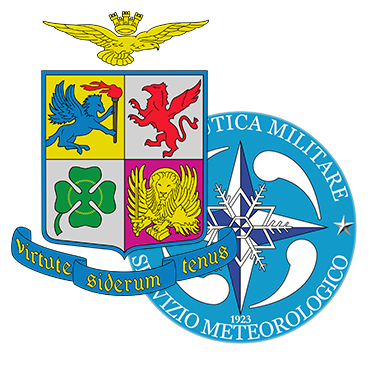

Education and Training
on Meteorology and Climatology
Dubai, Italian Pavilion
15:30 - 17.00 | 12:30 - 14:00 CET
ITALIAN SIDE EVENT AT COP28

About the Side Event
The Italian Meteorological Service will host a side event in the Italian Pavilion to present a catalog of courses in the fields of education, training, and specialisation in meteorology and climatology, that are the result of collaboration between different contributors.
The extensive range of offerings includes one-week courses tailored to the specific needs of field operators, as well as master’s degree programs designed to fulfil the academic requirements of young students. The course contents encompass a wide spectrum of topics, ranging from traditional meteorology to space weather, from the utilisation of instruments for data observation and processing (including spatial data) to practical applications relevant to users.
A Collaborative Endeavor: A Comprehensive Training Catalogue
The strength of our catalog lies in its diversity, as it caters to a wide range of knowledge and skill requirements for various audiences, including decision-makers, young students, farmers, technicians, researchers, and capability planners.
These comprehensive training courses have been developed through collaborative efforts involving multiple contributors. They are managed by key institutions such as the Italian Regional Training Center (Institute of BioEconomy of the National Research Council), the University of L’Aquila and La Sapienza in Rome, the Sant’Anna School of Advanced Studies in Pisa, and the Center of Excellence for Telesensing of Environment and Model Prediction of Severe Events (CETEMPS) in L’Aquila.
Furthermore, the Italian Air Force Meteorological Service oversees a variety of courses encompassing general meteorology, aeronautical meteorology, space weather, satellite data processing, and maintenance and calibration of meteorological instruments.
Expansive Training Programs: Meeting Global Educational Demands
The courses offered vary in format, ranging from master’s degrees provided by the Universities of L’Aquila and La Sapienza to annual programs and short courses offered by the Sant’Anna School of Advanced Studies, the Italian Regional Training Center, and CETEMPS. All course certificates comply with WMO regulations and protocols.
All courses are conducted in English, with some also available in French. They are designed to be flexible and adaptable, ensuring they align perfectly with the specific needs of participants. Many courses include hands-on practical activities, experiments, and exercises carried out at various Italian weather stations and scientific laboratories.
These courses are tailored to meet the needs of national and international institutions, agencies, operators, suppliers, and service recipients across a variety of weather and climate sectors. Some courses are specifically designed for countries in the Mediterranean region and across the entire African continent.
Foreign officials from agencies and organisations responsible for education and training in their respective countries may find certain courses of interest, particularly those that follow the ‘train the trainers’ principle. These courses are designed to disseminate knowledge and enhance education and training processes within their home countries.
About Italy role at COP28
Italy is participating in the 28th UN Climate Change Conference in Dubai, focusing on key topics such as the Global Stocktake on Paris Agreement implementation, a framework for the Global Goal on Adaptation, and a fund for Loss and Damage in developing countries.
Italy’s role at COP28 emphasizes promoting the Paris Agreement globally and showcasing domestic efforts against climate change. The Ministry of the Environment and Energy Security hosts 53 thematic events, covering diverse areas like energy transition, transportation, information, circular economy, and regional governance.
The Two training Initiatives presented
EWAfrica: Enhancing Early Warnings
for Climate and Weather Extremes
Supporting the Early Warnings for All Action Plan for Africa
Ethics in Action
Theorethical and practical Strategies for Climate Change Mitigation and Adaptation
The WMO RTC Italy at COP28
The RTC Italy at Glance
The Regional Training Centre (RTC) of the World Meteorological Organization (WMO), established in Italy in 1987, is operated by the Institute of Bioeconomy of the National Research Council (CNR-IBE).
The uniqueness of the RTC in Italy, within the network of 28 WMO RTCs, is that it serves both Region VI (Europe) and Region I (Africa) in collaboration with other local RTCs. The RTC in Italy is a center of excellence in providing training in agrometeorology and innovative climate services for agriculture, water, and food security.
The core philosophy of the RTC has always been to prioritise people, fostering transdisciplinary training activities to build knowledge and skills within a community of practice. Training transforms into a two-way knowledge exchange, involving both trainees and trainers, cultivating institutional, professional, and personal relationships.
The RTC primarily focuses on key areas such as agrometeorology, climate change, variability, and extremes, exploring their impacts on natural resources, agriculture, and society. It also specialises in seasonal and sub-seasonal forecasting, which serves as a valuable tool for managing water and agriculture, as well as mitigating climate-related risks.


